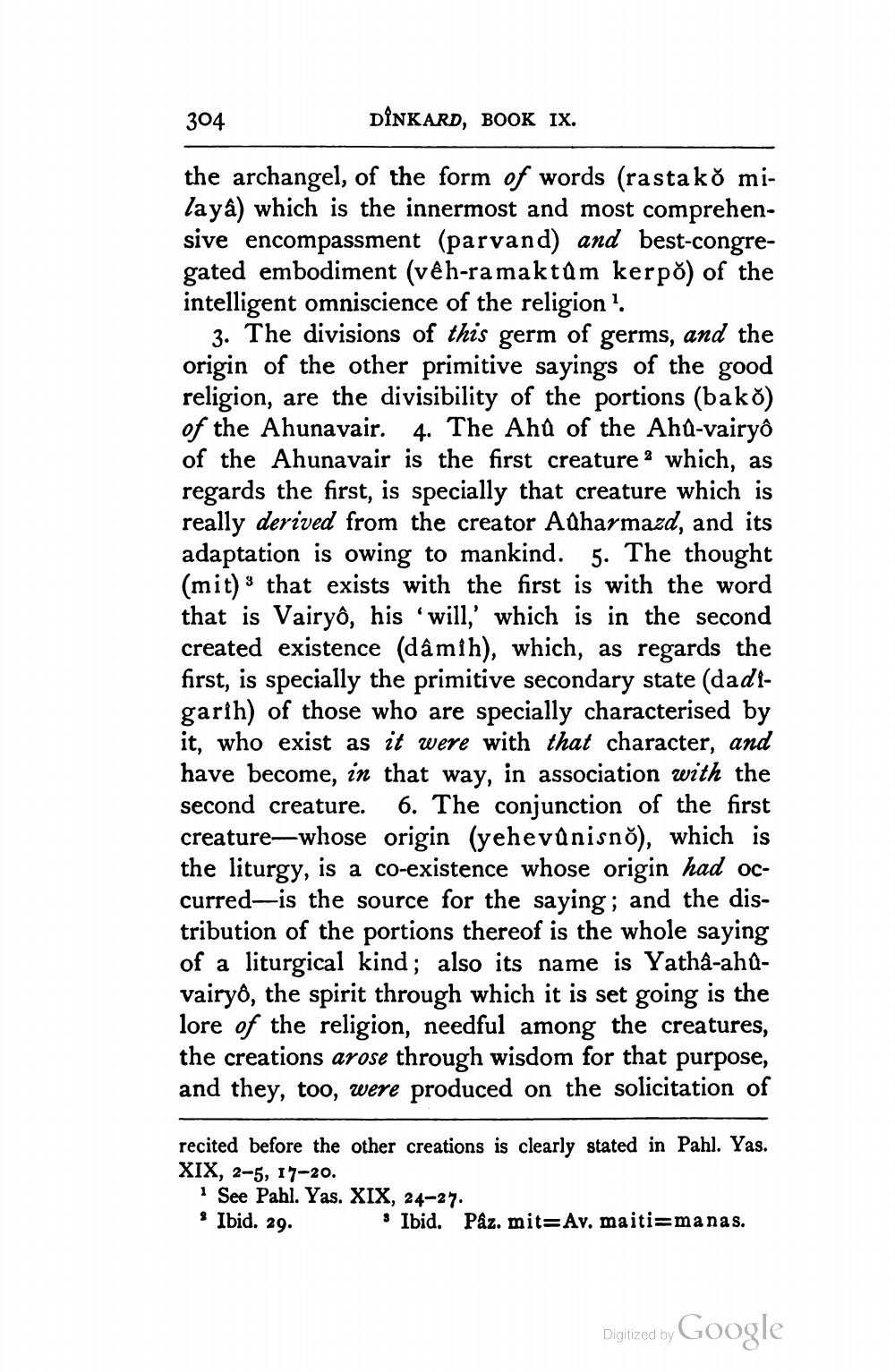________________
304
DINKARD, BOOK IX.
the archangel, of the form of words (rastako milaya) which is the innermost and most comprehensive encompassment (parvand) and best-congregated embodiment (vêh-ramaktům kerpo) of the intelligent omniscience of the religion?.
3. The divisions of this germ of germs, and the origin of the other primitive sayings of the good religion, are the divisibility of the portions (bako) of the Ahunavair. 4. The Ahů of the Ahd-vairyô of the Ahunavair is the first creature 2 which, as regards the first, is specially that creature which is really derived from the creator Adharmazd, and its adaptation is owing to mankind. 5. The thought (mit) that exists with the first is with the word that is Vairyô, his 'will,' which is in the second created existence (dâmih), which, as regards the first, is specially the primitive secondary state (dadtgarih) of those who are specially characterised by it, who exist as it were with that character, and have become, in that way, in association with the second creature. 6. The conjunction of the first creature—whose origin (yehevūnisno), which is the liturgy, is a co-existence whose origin had occurred-is the source for the saying; and the distribution of the portions thereof is the whole saying of a liturgical kind; also its name is Yathâ-ahdvairyô, the spirit through which it is set going is the lore of the religion, needful among the creatures, the creations arose through wisdom for that purpose, and they, too, were produced on the solicitation of
recited before the other creations is clearly stated in Pahl. Yas. XIX, 2-5, 17-20.
See Pahl. Yas. XIX, 24–27. • Ibid. 29.
3 Ibid. Påz. mit=Av. maiti=manas.
Digitized by Google




